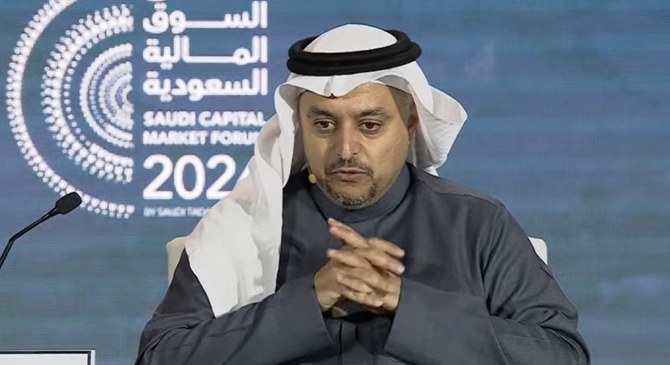
As I said in last week’s column, the future of energy is exciting and there are many opportunities. There are also many risks to consider as we move into this exciting future.
Energy transitions are more than changing percentages and amounts of types of energy. The Gulf Cooperation Council of 2050 and 2070 will be a vastly different place than it is today. Therefore, enhanced risk management and resiliency planning will be required to successfully navigate the energy transitions and their potential effects.
Massive changes will occur in energy systems, economies, labor markets, supply chains, food systems, water systems, and much more. The region has immensely changed in the past, and it will change even further in the coming decades. That reality needs to be realized by leaders and market analysts alike.
During transitions in energy systems, risks arise from the changes themselves.
The GCC will move from depending and investing massively in oil and gas to renewables like wind, solar, and geothermal, nuclear energy, hydrogen, ammonia, and energy storage. A much greater focus on increased energy efficiency, demand management, circular carbon economies, and circular economies will also become essential at this stage.
As these changes are happening, energy leaders and government officials must keep a constant diligent watch on how these changes will affect energy security, reliability, and resilience as they are important for everything else that will happen in the region. Any potential shocks must be analyzed and gamed out as best as possible before the changes happen, not after.
There are also risks in not attending to the issues of energy and economic justice, as energy transitions could cause dislocations and disturbances in labor markets. Those who lose their jobs need to be considered. If they are nationals of the region, new jobs will need to be found for them. If they are expatriate workers, then some may need to go back to their home countries.
An exceptionally large number of expatriates leaving the region could cause economic and social difficulties in their home countries. There will still be a great need for expatriate labor in many GCC countries for several other non-energy fields though.
The GCC needs to be constantly vigilant in its fight against cyberattacks on energy and other systems.
Dr. Paul Sullivan
For instance, increased demand for labor in the construction and maintenance of the new energy systems and their related systems will arise. Who will stay on? What will be the skills and expertise needed in the ensuing decades? These are questions that need to be considered soon.
Another source of risk that one should consider is associated with the “tyranny of small numbers” and the “tyranny of small spaces.”
Examples of these tyrannies can be seen in the small numbers of oil and gas ports that exist in the GCC area. Damages in one or two major oil and oil-products or LNG ports of the region could potentially cause disruptions in energy markets and economies of the region and globally.
One way to hedge against this risk is decentralizing energy facilities, building more and hardening them, henceforth lessening the “tyranny of small spaces” and the “tyranny of small numbers” effects on the region’s energy industry.
This will be increasingly important with increased geopolitical tensions with neighboring countries. A missile from Iran for instance can take a few minutes to reach Saudi Arabia or the UAE. So far, the GCC was lucky enough not to see massive infrastructure destruction and dislocation of energy flows.
But this is not always guaranteed in the future. Movements toward renewables and distributed energy can reduce the risks from over centralization and small numbers if they are done right.
The energy transitions may also protect energy systems against massive cyberattacks from non-state and state actors. Even though new energy systems can still be hacked, the effects of these attacks can be minimized by making the systems smart and detachable from the rest of the electricity or other grids if under attack.
The GCC needs to be constantly vigilant in its fight against cyberattacks on energy and other systems.
The world is still facing the challenges from climate and environmental changes engendered from previous practices. This is what the energy transitions are meant to mitigate and adapt to.
The heat of the region could get worse. There could be an increase in the numbers and severity of floods, droughts, and storms. All of these could have strong effects on energy systems, whether they are based on oil and gas or on renewable, nuclear, energy storage, and nuclear. Resiliency planning needs to focus on such possibilities.
To all problems and challenges there can be solutions. Pre-planning for responses is key. Building in passive protections will be especially important. “War gaming” the risks described will be particularly important.
There could be great benefits to developing coalitions and teams for preparedness for some of the risks to come – even if they are less severe than some may expect. The best resiliency and security planners prepare for worst-case scenarios. Then they hope for the best.
It could be significantly beneficial for the GCC to further develop energy resiliency, reliability, risk management, and security teams and planning. Making energy education a requirement for the public as well as leaders could also make an enormous difference.
Huge opportunities will be available for young people who are willing to learn about energy risk management and energy resiliency planning.
• Dr. Paul Sullivan is a senior research associate at KFCRIS and non-resident fellow, Global Energy Center, Atlantic Council.
Disclaimer: Views expressed by writers in this section are their own and do not necessarily reflect Arab News" point-of-view












